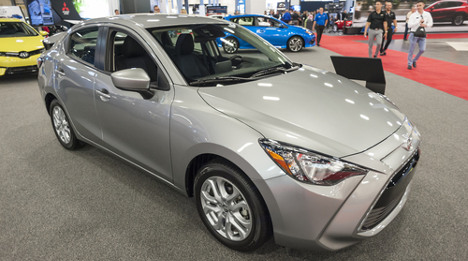How Scion’s transition may impact residual values

Scion iA
By subscribing, you agree to receive communications from Auto Remarketing and our partners in accordance with our Privacy Policy. We may share your information with select partners and sponsors who may contact you about their products and services. You may unsubscribe at any time.
IRVINE, Calif. and TORRANCE, Calif. –
Don’t expect to see a huge residual value impact from the decision to transition Scion to the Toyota brand.
According to Eric Ibara, Kelley Blue Book’s director of residual values, Scion vehicles tend to hold their value better than others.
But the challenge was from increased preference of utility vehicles over cars — something that a brand transition isn’t necessarily going to change.
“While this is a major change for Scion and its dealers, the impact on residual values for Scion vehicles is likely to be mild. Scion’s vehicles retain their value better than average, and some of their vehicles, like the now discontinued xB, were in contention for Kelley Blue Book’s Best Resale Value Awards,” Ibara said in an analysis sent to the media.
“The headwinds affecting Scion are the consumer trend favoring utility vehicles over cars, which is not solved by a Toyota badge,” he added. “To the extent that more Toyota dealers are energized to bid for these vehicles at auction, we may see slightly higher residual values; but at this point, that is somewhat speculative.”
According to a sales history of Scion provided in a Toyota news release, annual new-car sales for the brand peaked in 2006 at 173,034. Much of the years since then, however, have shown declining numbers.
Subscribe to Auto Remarketing to stay informed and stay ahead.
By subscribing, you agree to receive communications from Auto Remarketing and our partners in accordance with our Privacy Policy. We may share your information with select partners and sponsors who may contact you about their products and services. You may unsubscribe at any time.
There were 56,167 new Scions sold last year.
“The Scion brand never quite caught on in the way that Toyota hoped it would. By offering Scion products under the Toyota badge, the company can save marketing costs and eliminate what had effectively become a distraction from its core business focus,” Edmunds.com senior analyst Jessica Caldwell said in commentary provided to the media.
“Why didn't Scion catch on? For one thing, it's hard being a small car brand when shoppers opt for SUVs and trucks whenever gas prices aren't sky high. Last month, 58 percent of US sales were light trucks. Showroom traffic suffers when a brand doesn't offer such a popular segment of vehicles,” she added.
In a news release on Wednesday, Toyota said “customers’ needs” drove the decision to transition the Scion brand.
“Today’s younger buyers still want fun-to-drive vehicles that look good, but they are also more practical,” the company said. “They, like their parents, have come to appreciate the Toyota brand and its traditional attributes of quality, dependability and reliability. At the same time, new Toyota vehicles have evolved to feature the dynamic styling and handling young people desire.”


